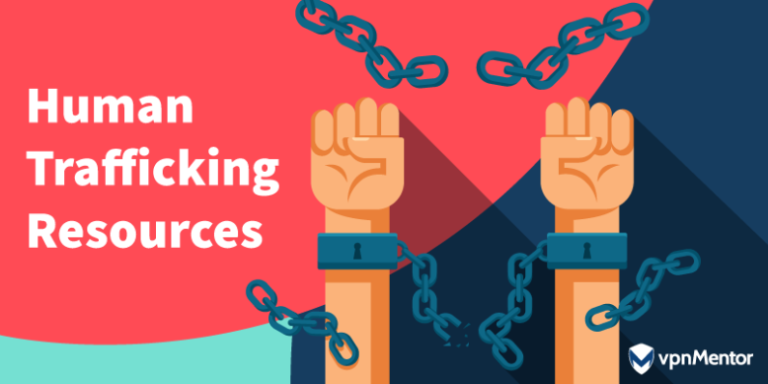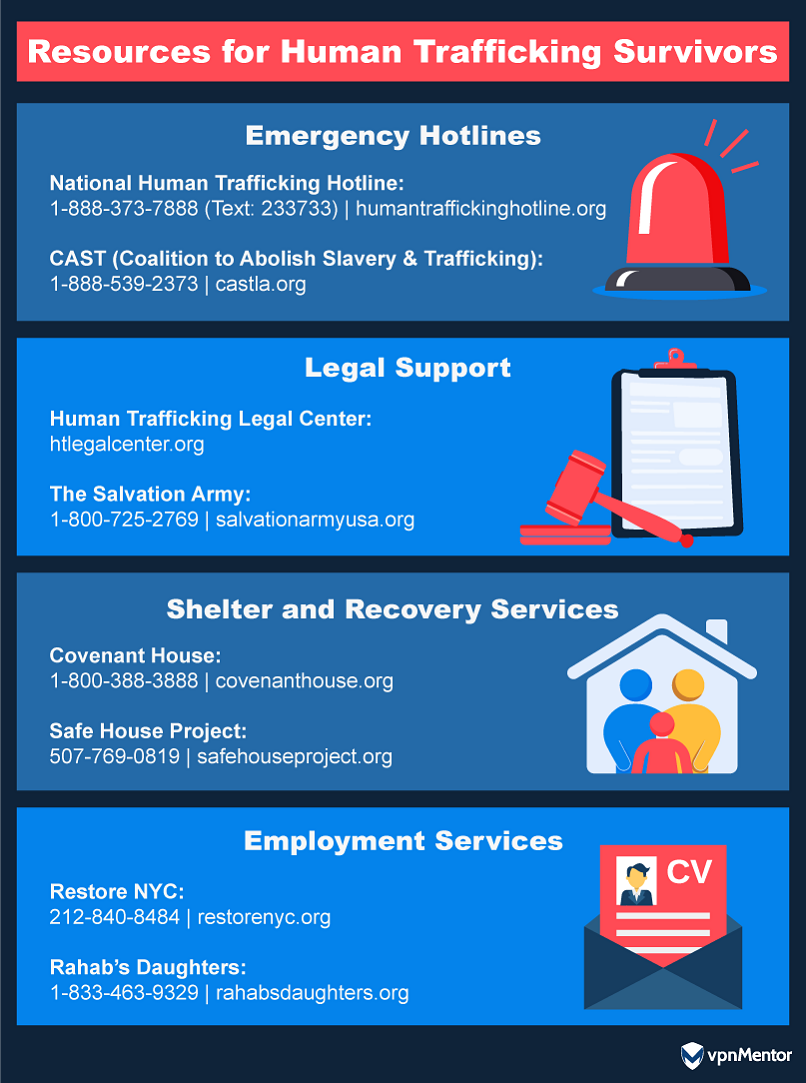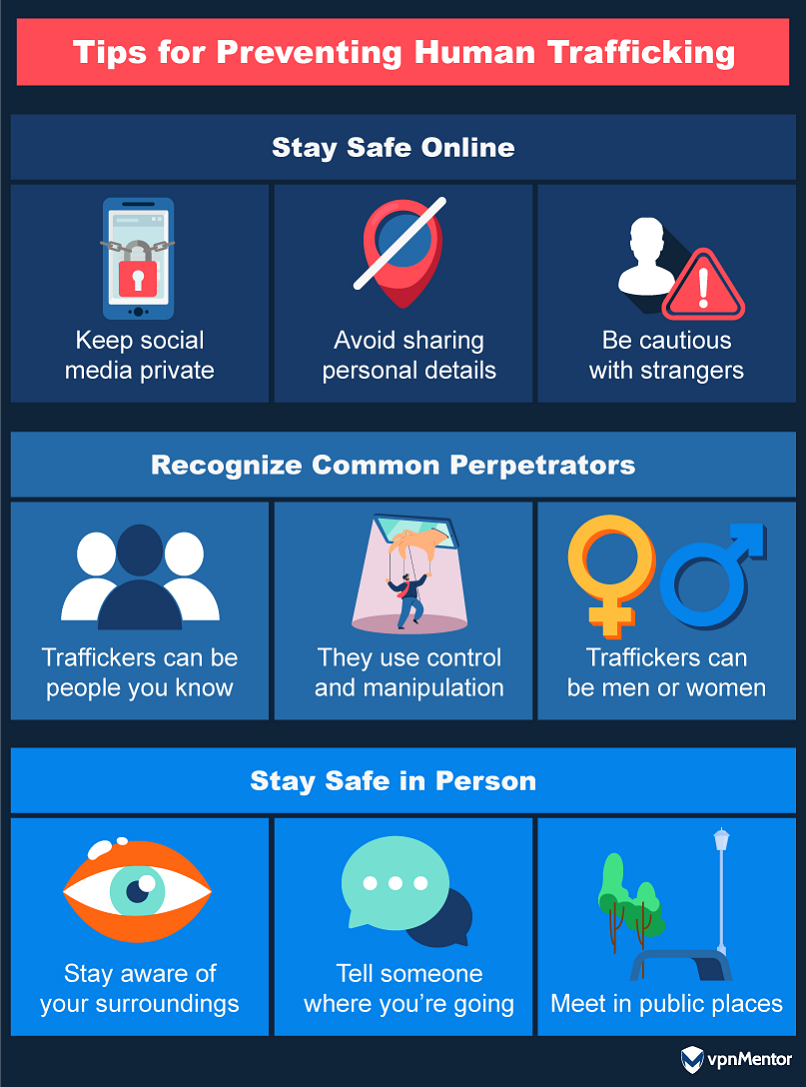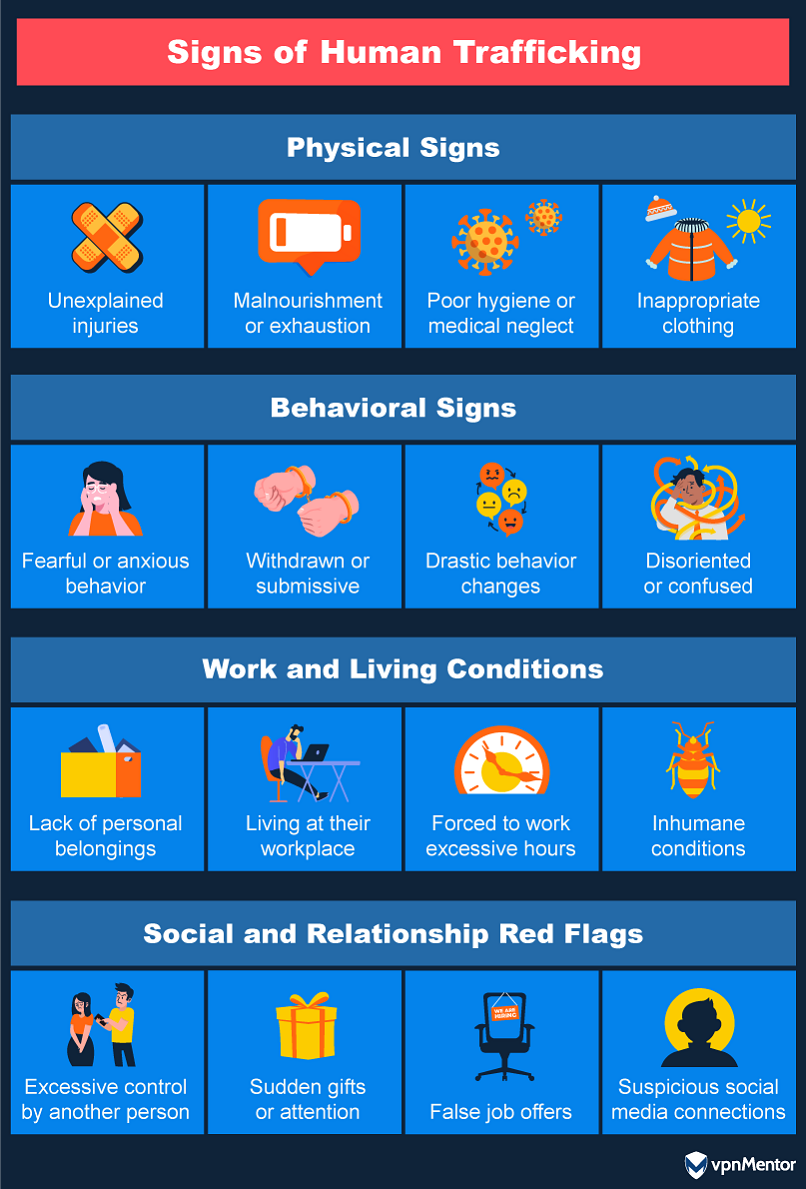Over 49 million people, including 12 million children, are trapped in modern slavery.
Of these people, 28 million are in forced labor.
Globally, human trafficking is a $150 billion industry, according to a report by Polaris.

In the U.S., UNICEF reports that human trafficking is the second most profitable criminal activity.
If you or someone you know needs help, contact a trusted organization or emergency hotline immediately.
These apps help law enforcement and the public identify, report, and prevent human trafficking worldwide.

Survivors can also get help with finding a job, learning new skills, and applying for benefits.
The organization trains professionals and community groups to better understand and respond to human trafficking.
Help is available through CASTs 24/7 hotline at888-539-2373.

Covenant House supports long-term recovery through education, job training, and independent housing programs.
Some locations provide alternative therapies like art, music, and pet therapy to aid in healing.
For help, call 1-800-388-3888 or visit aCovenant House locationto find safety, services, and support.

These services help survivors process trauma in a safe and supportive environment.
For immediate assistance, call the 24/7 crisis helpline at 336-228-0360.
Many hotlines operate 24/7 and offer multilingual support, ensuring accessibility for victims from diverse backgrounds.

37% of victims are EU citizens and 15% are children, making local support services critical.
Trafficking generates up to 14 billion per year for criminal networks, particularly in the sex trade.
To combat this crisis, the EU launched theEnd Human Trafficking.

Break the Invisible Chaincampaign.
This initiative raises awareness of trafficking networks, helps people recognize warning signs, and encourages reporting.
It has referred 470 legal cases and helped survivors win $90 million in damages.
For legal assistance or case referrals, contact info@htlegalcenter.org.
Since its founding, NCMEC has handled over 5 million calls and helped recover more than 426,000 missing children.
The organization works with law enforcement, social services, and the public to investigate cases and provide resources.
One of the organizations key services is the CyberTipline, a 24/7 reporting system for child sexual exploitation.
Anyone worldwide can report suspected abuse or exploitation at1-800-843-5678or through the secureCyberTipline website.
Trained analysts review reports and share them with law enforcement when needed.
TheTake It Downprogram helps young people remove harmful images shared online.
The hotline is available in English, Spanish, and over 200 other languages through live interpretation.
Survivors can call, text, chat online, or submit a tip anonymously.
For immediate assistance, call 1-888-373-7888 or visithumantraffickinghotline.org.
Since 2015, Rahabs Daughters has rescued over 1,000 survivors and trained thousands in anti-trafficking awareness.
An estimated 26,000 people are being trafficked in New York City right now, with marginalized communities disproportionately affected.
Restore NYC helps survivors regain stability and independence through housing and mental health services.
Its economic empowerment program also helps survivors gain job skills and secure stable employment.
Participants see a 365% increase in earnings from intake to first job placement.

For housing, counseling, or job support, contact Restore NYC at 212-840-8484.
Advocates provide crisis counseling, safety planning, and connections to shelters and local resources.
Services are available in any language.

ATP also helps survivors navigate the criminal justice system and provides training for professionals and organizations.
Safe House Project works closely with law enforcement and community partners to help survivors safely exit trafficking situations.
Since 2017, it has also trained over 400,000 people to identify and prevent trafficking.

Its advocacy programs and awareness campaigns work to prevent trafficking and improve survivor protections worldwide.
Survivors can also call 1-800-725-2769 for more information.
Its two-year residential program offers survivors free housing, healthcare, trauma therapy, and job training.
75% of graduates remain in stable, independent lives five years after completing the program.
Visit the website toapply for the residential program.
Due to high demand, the waiting list is capped at 100 women.
They work to prevent exploitation, support survivors, and push for stronger laws.
Its education curriculum and prevention programs help children and communities recognize warning signs and stay safe.
ItsWalk for Freedomis an annual event that mobilizes communities worldwide to take action against trafficking.
To support A21s mission, donations can be made ata21.org/donate.
Graduates gain real-world experience by working on software development projects, allowing them to transition into sustainable careers.
Donations help provide training, tech resources, and financial support to survivors and can be made atanniecannons.org/get-involved/become-a-donor.
It partners with survivors, communities, businesses, and policymakers to challenge the systems that enable exploitation.
Support survivors and help end modern slavery by donating atantislavery.org/donate.
The system helps survivors access safe housing and support services that meet their needs.
The organization offers tools like P.A.T.H.
Help law enforcement stop traffickers and protect communities by donating atdeliverfund.org/join-the-fight.
Survivors receive support from Independent Modern Slavery Advocates (IMSAs) who help them navigate legal and recovery processes.
To support Hope for Justice and long-term survivor recovery, donate athopeforjustice.org/donate.
IJM has helped over 21,800 victims escape trafficking and violence, ensuring they receive protection and justice.
Its advocacy work drives policy changes worldwide to increase survivor protections and hold perpetrators accountable.
To support IJMs mission, donations can be made atijm.org/give.
Justice At Last operates as a mobile legal practice, meeting clients in safe and familiar locations.
The organization prioritizes empowerment, accessibility, and human rights, ensuring survivors get the legal assistance they need.
Support free legal services for trafficking survivors by donating atjusticeatlast.org/donate.
ItsSurvivor Care Programoffers safety planning, crisis intervention, and long-term support, including education and employment assistance.
Love146 also works with communities, businesses, and service providers to improve anti-trafficking efforts through training and advocacy.
Its programs equip caregivers, educators, and law enforcement with tools to better protect children.
To support Love146s mission, donations can be made atlove146.org/donate.
The organization also manages a global directory of over 2,600 anti-trafficking organizations.
To support Polariss mission, donations can be made atpolarisproject.org/donate.
Its JuST Response project equips state and local agencies with tools to improve intervention efforts.
It also hosts theJuvenile Sex Trafficking (JuST) Conference, a national event focused on advancing anti-trafficking solutions.
To support its work, donations can be made atsharedhope.org/donate.
Trafficking Hope partners with The WellHouse in Alabama to provide emergency rescue and rehabilitation services for survivors.
It also collaborates with the National Trafficking Sheltered Alliance, connecting victims with care providers across the U.S. Help fund prevention, rescue, and survivor restoration by donating atdeka.gives/trafficking-hope/give.
For families affected by trafficking, it offers Family Huddle to help survivors and their caregivers rebuild relationships.
UAHT also provides training for professionals, equipping them to recognize and respond to human trafficking.
Support UAHTs mission to prevent trafficking and empower survivors by donating atfundraise.givesmart.com/form/T_I-YQ.
Survivors in Houston can access art, dance, and yoga therapies through the Healing Through the Arts program.
UFHD also provides scholarships, career coaching, and financial literacy workshops helping survivors transition into stable employment.
Additionally, UFHD offers internships for graduate students and clinical consultation for mental health professionals working with survivors.
To support UFHD in helping survivors regain independence, donate atufhd.org/donate.
We cover crucial topics in the following sections.
Tips for Preventing Human Trafficking
Traffickers exploit trust, vulnerabilities, and misinformation to control victims.
Knowing their methods can help you recognize danger and take steps to stay safe.
Whether online, in everyday interactions, or through false promises, staying informed and cautious can prevent exploitation.
Heres how to protect yourself and others from human trafficking.
Victims may be unable or afraid to ask for help.
Below we cover key indicators to watch for.
Recognizing these signs can help prevent trafficking and aid in identifying those in need of assistance.
If you suspect someone is being trafficked, contact a trusted organization or local authorities immediately.
The resources in this guide are designed to support victims, survivors, and their families.
No one should have to face this crisis.
For those who do, they shouldnt have to face it alone.
If you suspect trafficking or need assistance, reach out to a trusted organization or law enforcement agency.
just, comment on how to improve this article.
